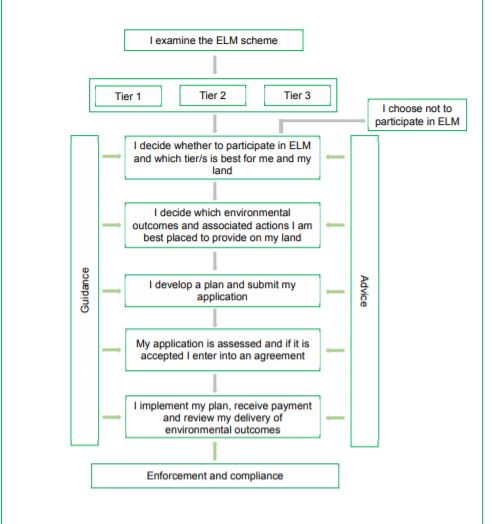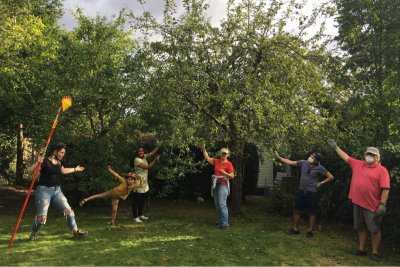

Is the new farm scheme the break from CAP we’ve been promised?
Sustainable farming campaign coordinator Vicki Hird examines government proposals for new farm policy, ELMS and the Agriculture Bill.
A new farm scheme discussion document outlines (some of the detail) of the proposed Environmental Land Management Scheme for England. At the same time, Defra published a wider farm policy paper. And the new Agriculture Bill is getting MP scrutinised. We take a look at it all.
Environmental Land Management Scheme discussion paper
Firstly the ELMS discussion paper which is also an online survey for farmers and other stakeholders. You can also download a PDF. Stakeholders have until 5 May 2020 to respond plus an opportunity to attend consultation events around the country; details will be on the Defra website soon.
Definitely this is a paper to read and respond to. It describes a pretty comprehensive break from the old-style EU Common Agricultural Policy (CAP) system. Some of what I outlined in my previous blog is confirmed and the paper now gives details of:
- The timetable of ongoing tests and trials, a pilot starting late 2021, and full ELMS rollout from late 2024. They discuss lessons learnt from previous schemes and principles for the new one.
- That as well as helping to reverse biodiversity loss and improve air and water quality, the new ELM scheme is intended to help government meet its “net zero” greenhouse gas emissions target by 2050.
- They are proposing a three-tier scheme and want all farmers (and foresters) to have a chance of joining at least the tier 1 scheme focused on, “incentivising environmentally sustainable farming and forestry”. Tier 2 is “designed to support land managers in the delivery of locally targeted environmental outcomes” and Tier 3 “delivering landscape scale land-use change projects”.
- For each tier, the paper describes possible actions that could be funded, how much collaboration between land managers will be encouraged, and how much they could be subject to local prioritisation. There is a table giving tier details and examples of what would be paid for.
- How they are consulting on design such as grouping actions for particular farm types, for example an upland package – to simplify things.
- There is very little detail on the money available or prioritisations of budget allocations between schemes.
- Makes clear farmers would be paid for going beyond the regulatory baseline – good – but what that baseline will be is unclear. There are on-going concerns at the basis for payment possibly being "income forgone plus costs" – this has been a very sticky areas and reading the paper its clear they not decided for sure yet and are exploring a range. Paying for outcomes (such as number of skylarks protected, water courses not polluted) has proved tricky. But to pay on "costs" only means farmers feel this will neither replace the Basic Payment Scheme (BPS) adequately nor provide a recognition for the public goods they are providing. But who decides how much these are worth? And bringing private finance into the mix may complicate matters but boost budgets.
- It describes a range of capital grants for small and large investments – such as precision slurry equipment or pest management technology – which will be provided to help improve "productivity and enhance the environment", from 2021.
- A new Research and Development strand which sounds like a great idea.
Defra state clearly that the ELMS discussion needs to be read alongside the second paper. which is a future farming policy update. So over 80 pages in total – but worth it – our observations below.
Farming for the future policy and progress update paper
This second policy paper contains many themes familiar to those tracking farm policy over the past three years and since the major Health & Harmony Consultation that the then Defra Secretary of State Michael Gove MP launched in 2018. It confirms that cuts to direct payments will begin in 2021 as planned, despite calls for a delay of a year from industry bodies. Farming bodies are understandably concerned that cuts may lead to massive loss of farms if ELMS does not quickly provide an alternative income stream for them: a fair concern but not a reason to delay. Rather, we need to get the new systems right and put in place transition support as needed.
As the cuts will depend on agricultural holding size there is a useful recognition of our alliance's calls to protect farm diversity by tapering cuts in payments to farm business size based on their current subsidy claims (5% £30,000 up to 24% for £150k or more). As payment claims are largely based on land area – which as we know is not a great proxy for farm business size – this is not ideal, but it’s a start.
The payments will be delinked from the land – which means no cross-compliance measures and a real break from the current CAP rules. The paper also confirms the option to take all support during the transition period of seven years as a lump sum. The Landworkers Alliance and others have stressed the need to ensure this policy does not lead to fewer holdings being available for new entrants as farmers take the money and retire, for instance. There could be incentives or conditions built in to make handing over the farm, to new farmers or a community farming business, attractive or open to share farming. Receiving a delinked payment will not disqualify recipients from applying for payment under the new schemes, including the Environmental Land Management system. One could argue, for some farmers/landowners getting huge sums of taxpayers' money, that this could be better spent.
The paper talks also of new strands of support including productivity (small and large investment strands) and an Animal Health and Welfare Pathway to help farmers: increase baseline regulatory requirements; develop reforms to improve consumer understanding and transparency; and to pay for animal welfare enhancements that are not rewarded by the market. How this will tie in with ELMS is key. It looks like the payments scheme is developing more slowly – with tests and trials and pilots – than ELMS.
The paper outlines the National Food Strategy work – covering the ‘entire food chain from farm to fork’ and this year’s focus on public engagement events to be held throughout 2020 to discuss the issues and potential solutions, ensuring that citizens’ voices are heard as part of the process. The review will publish a final report in winter 2020 with recommendations that will shape a National Food Strategy (as a White Paper) which will be delivered within 6 months of the review being completed. The paper also touches on the creation of the UK Shared Prosperity Fund to tackle inequality and deprivation in the four nations.
We were pleased to see the Fair Dealing Obligation clause in the Agriculture Bill and the Defra policy paper suggests how evidence of continuing poor contractual practice, have led to this new approach to the regulation of contracts. It will focus on the dairy and red meat sectors with public consultations to explore issues in these sectors in spring 2020. All good, but we must demand this goes beyond just these two sectors.
The Agriculture Bill
A final note on the state of play of the Agriculture Bill, which is a key legislative tool for making sure much of the above happens. The draft Bill (draft legislation) is currently at committee stage in parliament, which means that MPs are considering proposals to change, remove or add to the existing wording of bills to modify their effect. Read more about the process of amendments here.
However, as in previous rounds of the Agriculture Bill's development, most amendments will be voted out. You can read and watch all proceedings and latest amendments at 25 February here. I gave oral and written evidence, as did many Sustain members. The process does provide a chance to challenge the Farm Minister – now Victoria Prentis MP – to say how the Bill could and should work.
Many of the Sustain alliance and joint amendments – on agro-ecology, public health outcomes, household food insecurity, agriculture workers being protected, and on agri-food trade– have been tabled by MPs. The Bill will move probably by mid-March 2020 to MP Report Stage and debate, where a few top amendments will be voted on – agri-food trade and food import standards amendments being the most likely contenders. Given the Conservative Party majority it is likely these will not pass. The big moment will be in the House of Lords where Peers have already expressed huge concerns at the lack of duties and accountability in the Bill.
That’s a wrap. For now. We're looking forward to a busy few months ahead. Follow me on twitter (@vickihird) or sign up for newsletters for updates.
Sustainable Farming Campaign: Pushing for the integration of sustainable farming into local, regional and national government policies.
Sustain
The Green House
244-254 Cambridge Heath Road
London E2 9DA
020 3559 6777
sustain@sustainweb.org
Sustain advocates food and agriculture policies and practices that enhance the health and welfare of people and animals, improve the working and living environment, promote equity and enrich society and culture.
© Sustain 2026
Registered charity (no. 1018643)
Data privacy & cookies
Icons by Icons8







